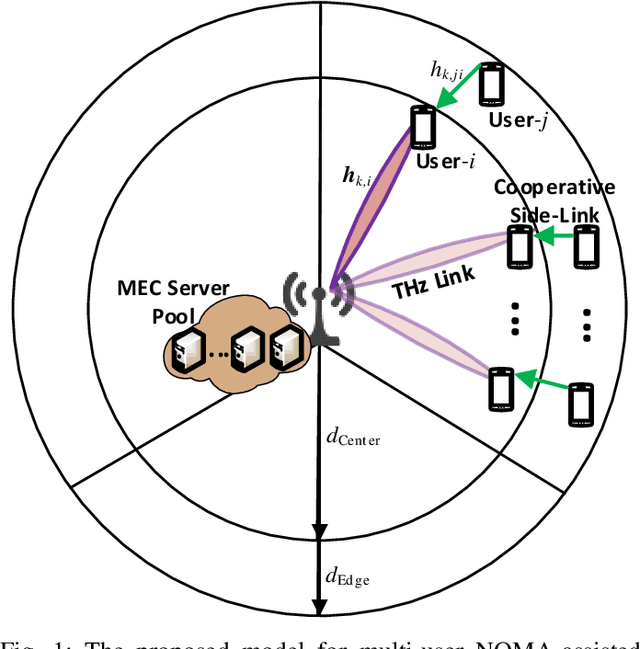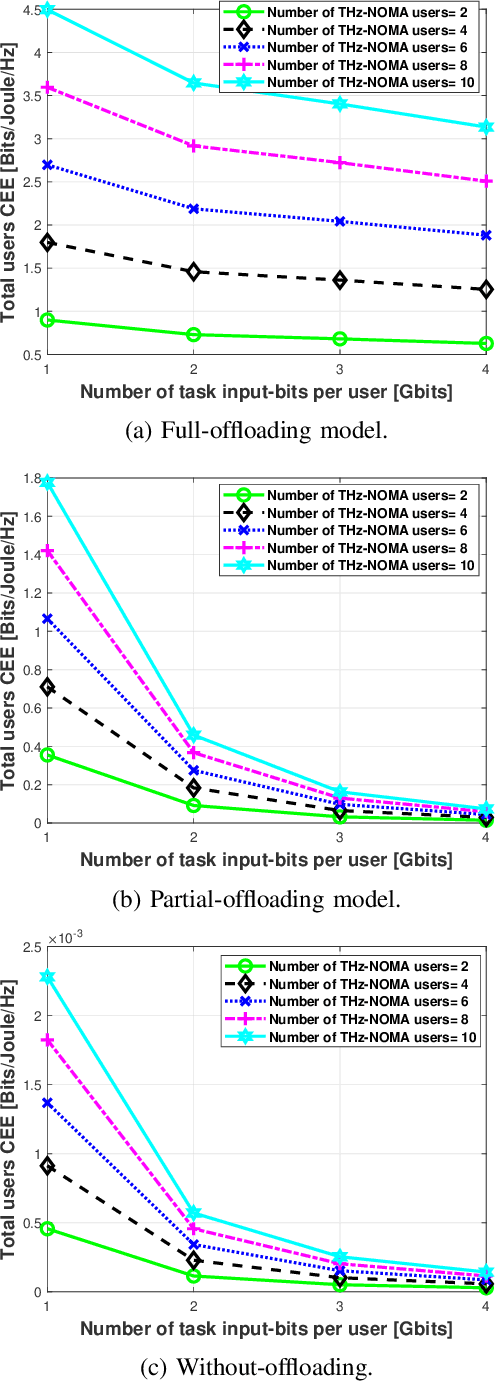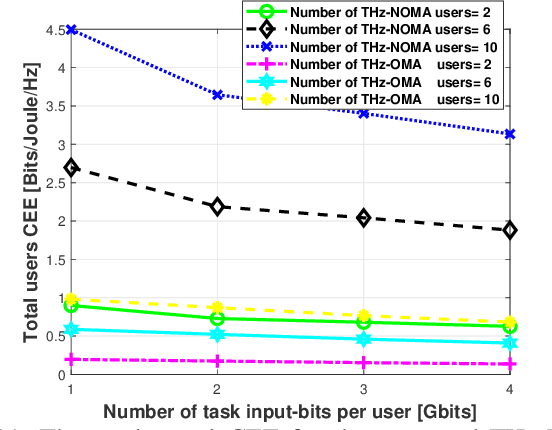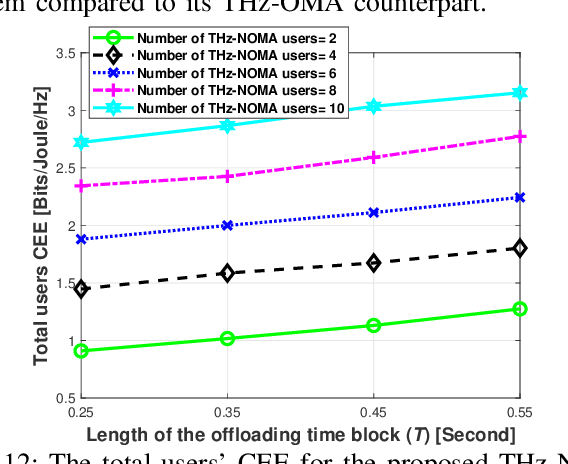Aditya Rajasekaran
Energy-Efficient Optimization of Multi-User NOMA-Assisted Cooperative THz-SIMO MEC Systems
Apr 08, 2023



Abstract:The various requirements in terms of data rates and latency in beyond 5G and 6G networks have motivated the integration of a variety of communications schemes and technologies to meet these requirements in such networks. Among these schemes are Terahertz (THz) communications, cooperative non-orthogonal multiple-access (NOMA)-enabled schemes, and mobile edge computing (MEC). THz communications offer abundant bandwidth for high-data-rate short-distance applications and NOMA-enabled schemes are promising schemes to realize the target spectral efficiencies and low latency requirements in future networks, while MEC would allow distributed processing and data offloading for the emerging applications in these networks. In this paper, an energy-efficient scheme of multi-user NOMA-assisted cooperative THz single-input multiple-output (SIMO) MEC systems is proposed to allow the uplink transmission of offloaded data from the far cell-edge users to the more computing resources in the base station (BS) through the cell-center users. To reinforce the performance of the proposed scheme, two optimization problems are formulated and solved, namely, the first problem minimizes the total users' energy consumption while the second problem maximizes the total users' computation energy efficiency (CEE) for the proposed scheme. In both problems, the NOMA user pairing, the BS receive beamforming, the transmission time allocation, and the NOMA transmission power allocation coefficients are optimized, while taking into account the full-offloading requirements of each user as well as the predefined latency constraint of the system. The obtained results reveal new insights into the performance and design of multi-user NOMA-assisted cooperative THz-SIMO MEC systems.
 Add to Chrome
Add to Chrome Add to Firefox
Add to Firefox Add to Edge
Add to Edge